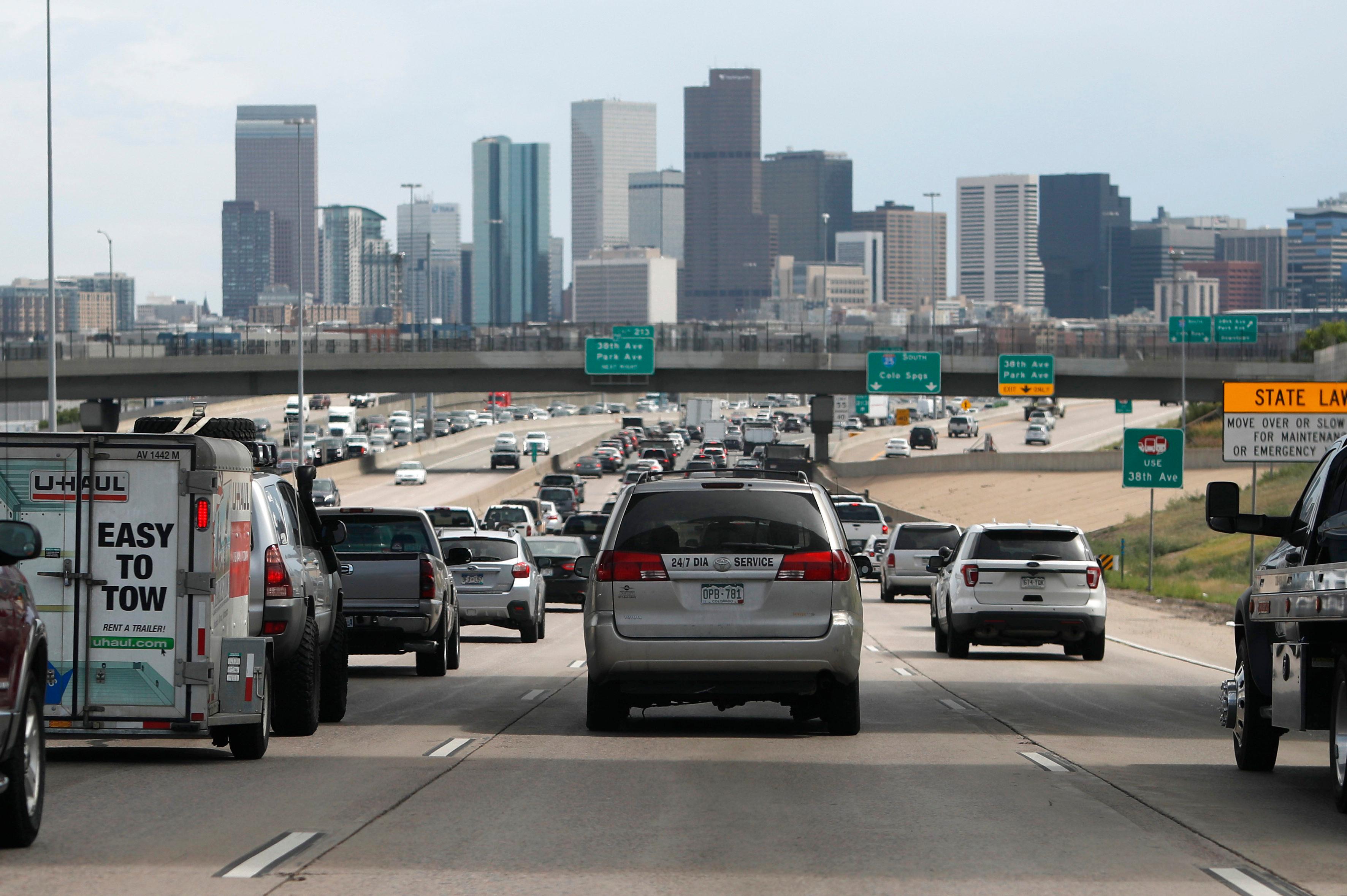
On an average day in 2018, vehicles in the Denver metro traveled 84.3 million miles. That's up 15 percent from just five years ago, according to a new report from the Denver Regional Council of Governments.
That amounts to more hours spent stuck in traffic — about 33 hours on major roads and freeways for the average person.
The picture gets a little sunnier when you account for the region's population increase in that time; vehicle miles traveled per capita actually decreased slightly between 2017 and 2018.
There could be a few factors behind that, said Robert Spotts, DRCOG's planning supervisor and the report's author, including telecommuting, e-scooters and bike-sharing.
But there's a more sobering explanation too.
"Traffic congestion could be getting to a point where people are starting to avoid trips," he said.
Spotts expects the roads to only get more crowded. By 2040, vehicle miles traveled on freeways and other major roads is forecasted to grow by more than 40 percent from 65.1 million to 93.4 million. That could add up to 56 hours of travel delay per resident over the course of a year by then.
State and local leaders want to spend more money on transportation, and often point out that the state hasn't raised the gas tax since 1991. Multiple statewide ballot measures to fund new projects have failed in recent years, and DRCOG officials are now exploring the viability of a regional funding model.
At the same time, the Colorado Department of Transportation's relatively new executive director, Shoshana Lew, told Colorado Matters that the Denver metro is near a tipping point where personal vehicles may no longer the best way to get around. Trains and buses, she said, are more efficient at moving large numbers of people.









